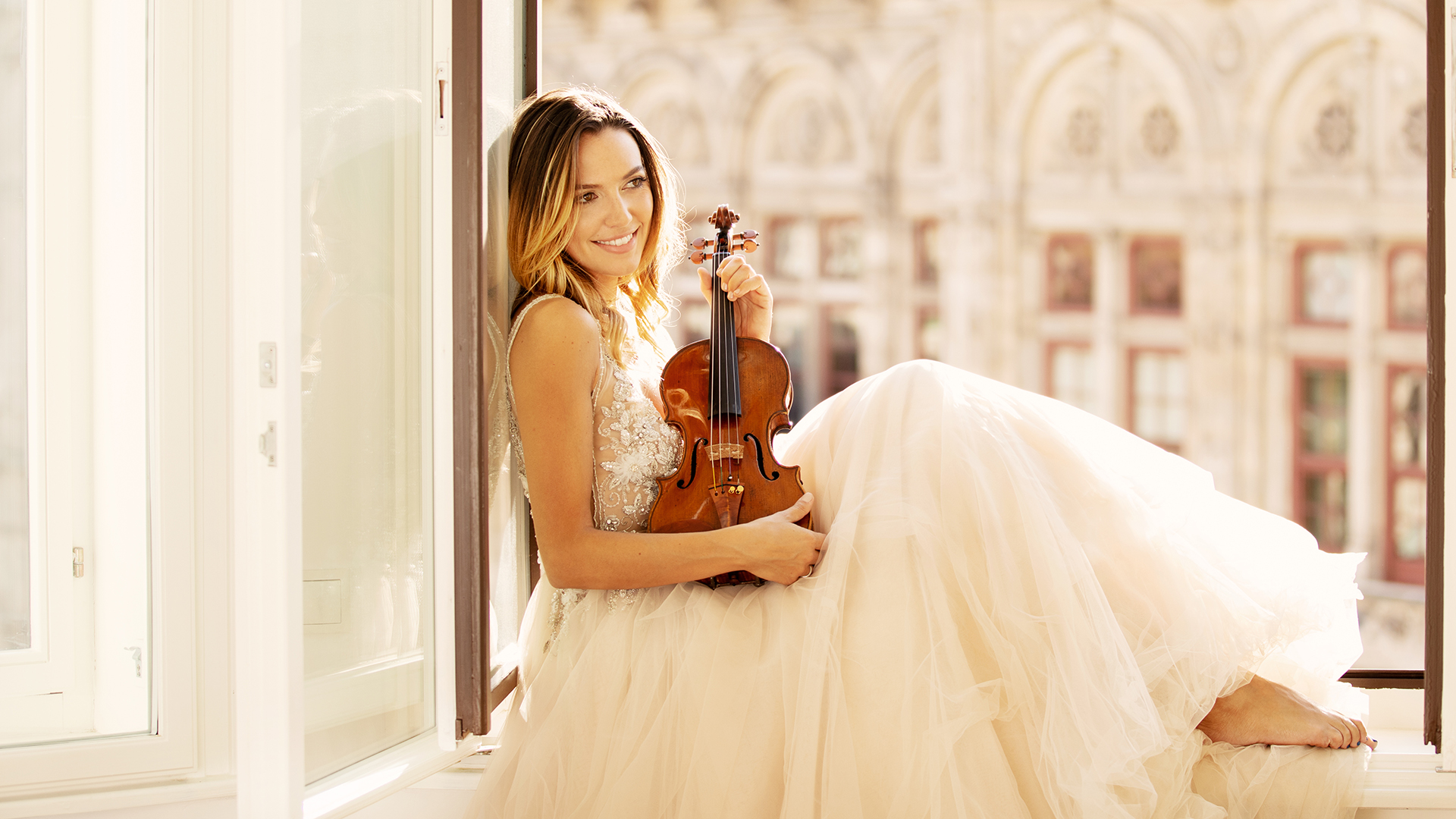What does the first symphony ever composed in the Russian Empire sound like? Ukrainian composer Maxim Berezovsky studied under the Italian Masters at both the St. Petersburg Court and the Bologna Academy of Music, from which he graduated with honours a few months after Wolfgang Amadeus Mozart. Berezovsky's supposedly lost symphony was found in the Vatican archives in 2000. Film director Andrei Tarkovsky describes the life of Berezovsky in his film Nostalgia, the protagonist of which travels to Italy to carry out research about the 18th-century homesick Russian composer.
More than a hundred years later in Russia, symphonies were composed by the likes of Pyotr Tchaikovsky, who posed great questions in his Fifth Symphony: To be or not to be? Which wins, fate or strong will? Does suffering lead to victory? The dramatic wrestling with these thoughts is sweetened by the third movement composed to the soft rhythm of a waltz.
The violin, viola and orchestra converse gracefully in the Sinfonia Concertante, with Julian Rachlin and Sarah McElravy performing as soloists.
Watch and listen both live and on-demand through the Helsinki-kanava site and via the HKO Screen-app.
LINK TO HELSINKI-KANAVA
Watch live and discuss through the orchestra's YouTube channel
LINK TO YOUTUBE
Julian Rachlin
Born in Lithuania in 1974, Julian Rachlin emigrated to Vienna with his family at the age of three. A veritable Wunderkind, he was the youngest ever soloist to appear with the Vienna Philharmonic Orchestra, at the invitation of Riccardo Muti. He has since been a guest with practically all the world’s leading orchestras – including the HPO in 2010. He is also a celebrated conductor and is at present Principal Guest Conductor of the Turku Philharmonic and Principal Artistic Partner of the UK’s Royal Northern Sinfonia. Tonight marks his conducting debut with the HPO. Mr Rachlin plays the 1704 “ex Liebig” Stradivari, on loan to him from the Dkfm. Angelika Prokopp Privatstiftung in Vienna.
Sarah McElravy
Equally respected as a violinist and violist, Sarah McElravy (Canada) studied at the Cleveland Institute of Music and Yale University’s School of Music. A founding member of the Linden String Quartet, she also founded the Chamber Music Society México bringing leading artists to perform and provide educational programmes for talented young Mexicans. This season, she has performed Mozart’s Sinfonia Concertante with her husband, Julian Rachlin, in Dortmund, Graz and Stockholm, and in spring this year the violin-viola version of the Bruch Double Concerto in Turku. Sarah McElravy plays a 1785 Lorenzo Storioni viola on loan to her from the Dkfm. Angelika Prokopp Privatstiftung in Vienna.
Maxim Berezovsky: Symphony in C
Just when Maxim Berezovsky was born is open to speculation, but he is known to have seen the first light of day in what is now Ukraine and quite possibly studied in Kiev. He was the Russian Empire’s first court composer and is attributed with the honour of having composed the first symphony and opera in Russian history. One thing is certain, namely that he was in Bologna in Italy at the same time as Mozart, and they both studied with the same Padre Martini. On his return to Russia, he served at the court of Catherine the Great and died in 1777. The Symphony in C (c. 1770–1773) dates from his time in Italy and was only discovered in the Vatican archives some 20 years ago. Its three movements are performed without a break, which suggests that the work was quite possibly intended as the overture to his only opera, Il Demofonte.
Wolfgang Amadeus Mozart: Sinfonia Concertante in E Flat, KV 364
The Sinfonia Concertante – a cross between a symphony and a concerto – was all the rage when Wolfgang Amadeus Mozart (1756–1791) visited Paris in 1778. No wonder, therefore, that he was inspired to write two of his own: one for four wind instruments that has been lost and, possibly back home in Salzburg, one for violin, viola and orchestra. The solo parts were probably tailored for him (on the viola) and his father (on the violin) to play; this no doubt explains why the two instruments are given equal prominence. The work is a brilliant example of Mozart’s ability to weave two solo parts into an orchestral texture that has all the richness of a symphony and is bolder and more substantial than in concertos in general at that time. It avoids all the superficiality of his five violin concertos and those for two and three pianos, being as packed with drama as a tragic opera in which the main characters engage in heart-to-heart dialogue. The weightiest moments come in the second movement: assuming that the soloists are father and son, could they be discussing the sudden death of wife/mother Anna Maria Mozart during the trip to Paris?
Pyotr Tchaikovsky: Symphony No. 5 in E Minor, Op. 64
Life looked grim for Pyotr Tchaikovsky (1840–1893) in the mid-1870s. His marriage had failed and he would soon have to confront his homosexuality – still a criminal offence at that time. His fourth symphony (1888), equipped with a programme, was his first attempt to handle the crisis, and the fifth, ten years later, was a sort of continuation. The idea of both is the relationship between man and fate.
The clarinets begin the first movement with the motto that will, like an idée fixe, run right through the symphony. It is a quotation from Glinka’s opera A Life for the Tsar, where it accompanies the words “turn not into sorrow”. This motto will keep cropping up, at times mournful as in a funeral march and at others dancing or triumphant. The second movement again reflects the composer’s anguish. Tchaikovsky is said to have pencilled in the score: “Oh, how I love... if you love me... With desire and passion.” The third, by contrast, is the carefree waltz of a master ballet composer and the fourth builds up to a mighty march in a major key with the final realisation that we simply have to accept our fate.

